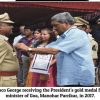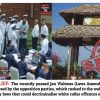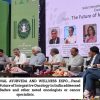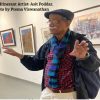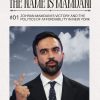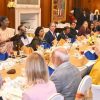Goa is abuzz with excitement as vintage bike and car owners, users, collectors and fans are decking […]
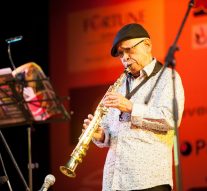
ICONS OF GOAN MUSIC
Uncategorized October 17, 2025By Rajan Narayan
For centuries, Goan homes have been filled with music. Goan musicians fanned out to other parts of the country and abroad to richly contribute to music genres of different times.
I first heard Remo Fernandes at the centenary celebrations of Mormugao Port Authority (MPA) in 1988. Rajiv Gandhi was the chief guest.
A young architect-turned-pop-star sang a reverential song; “Dear Rajiv Gandhi, please come to Goa again and again so that the roads become smoother than the backside of an infant. The then Editor of Navhind Times deplored his rudeness.
To make it right, Remo wrote to Rajiv, who assured him that he had not taken any offence. I had another close encounter with Remo when he held a public concert to mark his 50th birthday on the Panjim Gymkhana ground.
We were in the middle of a severe acute respiratory syndrome (SARS) epidemic. I had made a film on how to prevent SARS, for which Remo quoted Rs 3 lakh. Parrikar gave his nod on the request of the then health secretary Rina Ray.
I was also present at a concert,the singer had held in Rio de Janeiro in Brazil, on the sidelines of the BRICS Summit in 2010.
Now, rewind to Haystack in 1989,the first dine-and-dance club in Goa. It was started in the mid-eighties on a family farm by August Braganza in Arpora.The place was literally among stacks of hay, where August would get together the best Goa’s musical talent.
There was Lucio Miranda, the architect who would croon soulful Latin songs – strumming on his guitar; Young Remo on his flute; the Valadares Sisters – Ruth, Jacinta, and Lucia; Bondo Fernandes, the internationally renowned Indo-Latin percussionist and drummer; Timoteo Fernandes with his team of folk dancers, and of course, August himself was Goa’s Elvis Presley.
Dinner was catered by Gines Viegas of O’Coqueiro.
It was the choirs of the churches that were the nursery of the musical genius of Goa. The Portuguese brought the organ – keyboard musical instruments of one or more pipe divisions – to Goa. The Rachol seminary first introduced the coastal State to the sound of music.
It also is home to a still-functioning 16th century organ. Every church had a music meister. From childhood, young Goans learned to play the guitar, beat the drums and blow the saxophone.
The choirs proved a source of employment for them too. Late Cosme Matias Menezes, who founded the drugstore CMM in Panjim during the Portuguese rule, got a job as a drummer with the Portuguese Army in Angola.
The father of late Vincent Ramos, regional manager of Taj Hotel, was also part of the army band in Poona. It was Goan musicians, who introduced the orchestra concept to Bollywood. The choir master of the Majorda church – Jose Antonio Gonsalves– migrated to Mumbai to work with the Hindi film music composer Naushad Ali.
Later, he joined music composer Laxmikant Pyarelal. The song Amar Akbar Antony was dedicated by Pyarelal to Antony Gonsalves. The legendary saxophonist was compared to the legendary jazz musician Duke Ellington and was a product of the Benaulim Choir.
Late jazz trumpeter Chris Perry, who brilliantly blended jazz with Konkani music and created ‘Nightingale of Goa’ Lorna Cordeiro, had passed out of the Mapusa church choir; Remo had started out in the Siolim church while Dr Franscisco Colaco and family learnt their first notes in the Holy Spirit church in Margao.
The organ or the piano is Portugal’s gift to Goa. No Goan Catholic home is complete without at least one Baby Grand Piano. At any given time, there are five-thousand-plus Goans learning the piano.
Goa has had a long association with Trinity College of Music. When I was staying in the La Marvel Colony in Dona Paula, I became familiar with Mercedes Lobo and Myrrh Shroff, sisters who were music sensation in the 80s and 90sand have guided generations of Goan musicians.
Linda Diniz Braganza, who played the keyboard in Henry Pineiro’s music band ‘Ecstasy’and was tutored by musician Patrick Rosary, was honoured by UK’s Trinity College in August.
If one were to write a book on Goa’s musical vein, it would run into endless pages. From the sea in the West to the Western Ghats in the East, every home in Goa has reverberated with music and dance. This musical tradition of Goa continues even today, but has a different ring and sound to it.

